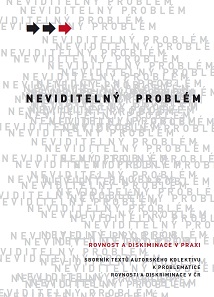
We kindly inform you that, as long as the subject affiliation of our 300.000+ articles is in progress, you might get unsufficient or no results on your third level or second level search. In this case, please broaden your search criteria.


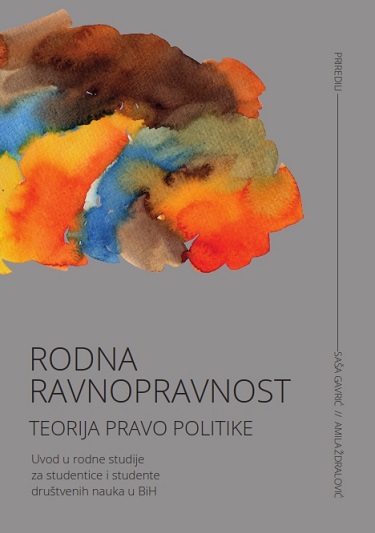
Rodno zasnovano nasilje je kršenje ljudskih prava i oblik diskriminacije i označava svaki čin nasilja koji ima za posljedicu ili će vjerovatno imati za posljedicu fizičku, psihičku, seksualnu ili ekonomsku povredu, odnosno patnju, uključujući i prijetnje takvim djelima, prinudu ili namjerno oduzimanje slobode u javnom ili privatnom životu. Rodno zasnovano nasilje je jedan od najviše rasprostranjenih oblika kršenja ljudskih prava i fenomen koji je duboko ukorijenjen u rodne nejednakosti, počiva na rodnim normama i nejednakim odnosima moći. Može se manifestovati u različitim oblicima ili kao kombinacija više njih: fizičko, emocionalno, psihološko ili seksualno nasilje te ekonomsko nasilje. U ovom tekstu, rodno zasnovano nasilje razumijemo u širem smislu, uključujući i nasilje na osnovu seksualne orijentacije i/ili rodnog identiteta.
More...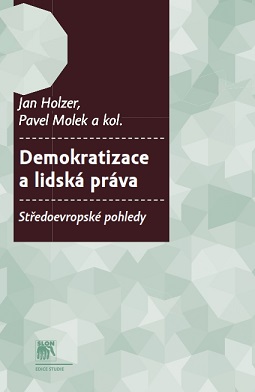
S procesem demokratizace bývá takřka automaticky spojován (v předchozích kapitolách čas od času rozporovaný) předpoklad, že její úspěšný postup s sebou přinese narůstání úrovně ochrany a že tedy postup demokratizace a zvyšování úrovně ochrany lidských práv korelují. Vychází to ostatně z jednoduchého postřehu, že demokracie je zatím nejlépe fungujícím prostředkem k dosažení či udržení svobody jednotlivce. Je ovšem otázkou, zda cesta, tedy demokratizace, má stejné vlastnosti jako cíl, tedy demokracie. Je přinejmenším hypotézou hodnou falsifikace, zda je zmíněná korelace mezi nárůstem demokracie a ochranou lidských práv tak jednoznačná, jak se domnívali ti, kdo na náměstích drželi při revolucích vedoucích k pádu nedemokratických režimů transparenty dovolávající se demokracie vedle transparentů domáhajících se dodržování lidských práv.
More...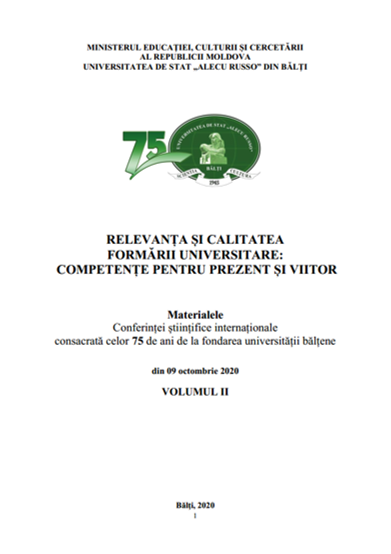
Women's sexual and reproductive health is linked to multiple human rights, including the right to life, the right not to be subjected to torture and ill-treatment, the right to health, the right to privacy, the right to education and the prohibition of discrimination. Considerable global progress has been made in recent decades in the area of women's sexual and reproductive health and rights, and in eliminating related forms of discrimination, and the international community is at the forefront of these efforts. However, despite significant progress, the content and area of reproductive rights remain controversial and women continue to face spread denials and violations of their sexual and reproductive rights and health
More...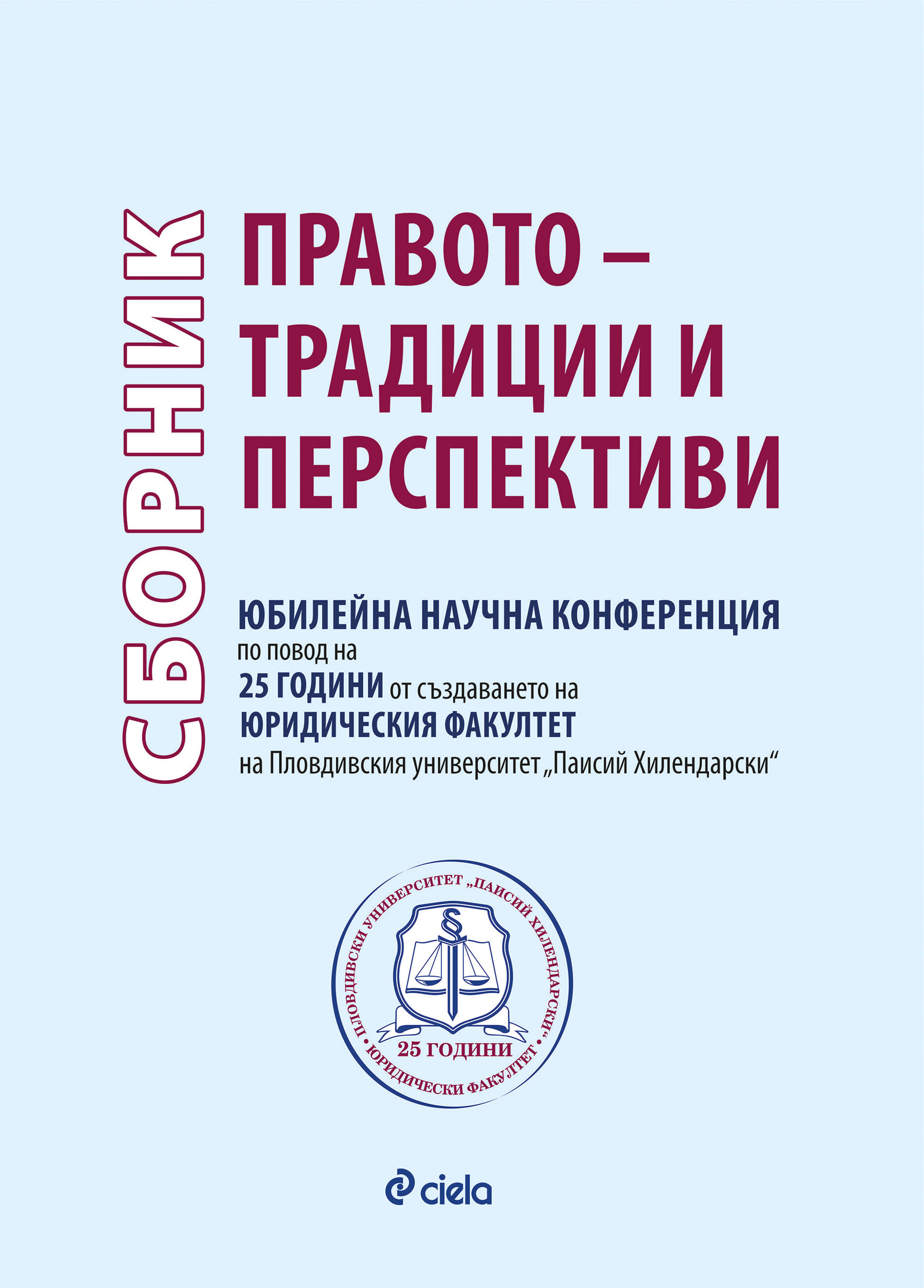
One of the components of the United Europe idea, according to its founders, is culture. The EU views the goal of maintaining cultural diversity as complementary to the goal of highlighting the common cultural legacy. Both of these objectives are more likely to be attained through intercultural conversation and the free movement and access to all cultures. Starting from diversity, the goal is to achieve a unity that does not, however, harm the original diversity, which is preserved. The European Union's motto, "United in Diversity," is a wonderful synthesis of this strategy.
More...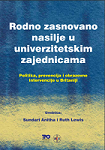
Iako zakoni postoje da bi štitili žene od nasilja nad ženama i djevojčicama u kampusu, preživjele ih rijetko koriste, a institucije rutinski ignoriraju. U ovom području je bilo vrlo malo slučajeva, što je otežalo pravnu analizu, ali u ovom poglavlju se razmatra postojeće zakonodavstvo i procjenjuje se kako bi se moglo više koristiti da bi se postigla nužno potrebna promjena u odgovornosti univerziteta i poštovanju ženskih prava. Vrlo mali broj dosadašnjih slučajeva odraz je kulturnog i zakonskog okruženja, kao i teškoća na koje žene nailaze pri pokretanju takvih slučajeva. Međutim, važeći zakoni omogućavaju pozivanje univerziteta na odgovornost, a ovom poglavlju koje je napisala advokatkinja koja ih je koristila u novijim predmetima (uključujući R (Ramey) protiv Upravnog odbora Univerziteta Oxford), detaljno se razmatra evropsko, međunarodno i zakonodavstvo UK koje je dostupno preživjelima rodno zasnovanog nasilja, njihovim advokati(ca)ma i aktivistkinjama.
More...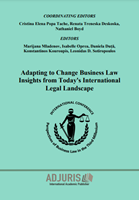
Modern Civil codes are mostly based on Private Roman Law, and this relation can be seen especially in the regulation of contracts and torts. The aim of this paper is to highlight the essential elements of the vendor’s warranty against eviction by reference to the main sources of Roman Law, in order to search for its influence on contemporary civil law, in France, Germany and Italy. The analyze undertaken will use the comparative method, with direct reference to the Roman institutions that influenced contemporary legislation. This study is part of the author’s recurring interest regarding the warranty against eviction, and its main focus is on the definition of eviction alongside the object of the warranty. As a conclusion, the author identifies a slightly different approach concerning the concept of eviction, that explains the similar treatment both for the warranty against eviction and defects, found in current legislations.
More...
This article is dedicated to human trafficking as one of the most dangerous and highly profitable forms of international organized crime. The study examines the process of the international community's fight against such an international crime, analyzes the international legal acts aimed at suppressing this crime. The legislation in force in Romania is researched, concepts such as "human trafficking", "human exploitation", "recruitment", "transportation", as well as certain features of the criminal law and the forensic characteristics of the analyzed crime, are revealed, which features of this crime must be taken into account, the importance of human trafficking investigations.
More...
The issue of liability of the legal person, in the context of discussing the "challenges of business law in the third millennium", gives us the opportunity to address some aspects regarding the qualification as "criminal sanctions" of some administrative measures taken in fiscal terms. Using, as research methods, documentation, interpretation and comparative scientific analysis, the present study brings to attention the need to continue the process of harmonizing national legislation with European Union law, with a view to the uniform application of a general regime of excise duties. Starting from a recent decision of the Court of Justice of the European Union (Judgement of 23 March 2023) regarding two preliminary questions formulated by a Romanian court, and considering the fact that the phrase "in criminal matters" has a wider meaning in Union law compared to the one in the Romanian legislation, this paper also concludes with a concrete legislative amendment proposal to avoid the risk of violating, in certain situations, the principle of the presumption of innocence against the legal person that functions as a tax warehouse.
More...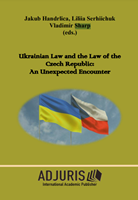
Recognition of foreign administrative acts has triggered a considerable attention of the scholarship of public law in Europe. The fact is, however, that most of the scholarship has paid attention to those models of recognition, which have been established to exist in the period of peace. In this respect, the feature of recognition has been understood as a tool, facilitating circulation of persons, products and capital. Thus, the existing academic debate on recognition has focused on this feature from the perspective of reciprocity (= mutual recognition). The current occurrences, which have arisen in the aftermath of the Russian aggression against Ukraine, represent a salient opportunity to analyse the feature of recognition from a different viewpoint. While the major approach of the EU law to the feature of recognition has been until recently based on reciprocity, the emergency legislation issued after February 2022 is built upon unilaterality. This article will focus different pieces of EU legislation, which have been issued to govern certain issues in recognition, arising with respect to the war in Ukraine.
More...
Every encounter of two different cultures almost inevitably brings along an issue of translation and interpretation. When it comes to bureaucratic procedures, the Czech law requires that certain inter-linguistic actions be executed with the assistance of socalled court translators and court interpreters, i.e. highly skilled professionals holding a special license issued by the Ministry of Justice. While the regulatory regime of certified translation and interpretation had been designed as to satisfy the ordinary day-to-day needs of the judicial system, an unexpected and acute crisis concerning thousands of foreign nationals having not one, but two or more native languages, seemed to have put the relatively rigid system to the trial. Our presentation will address the problematic regulatory issues arising from this situation and propose both practical and theoretical or conceptual solutions to the existing problems.
More...
The article is devoted to the study of theoretical and practical aspects of the status of persons with temporary protection in the Czech Republic. Normative provisions of international legal acts and national legislation regarding the protection of this category of persons have been considered. It is outlined what legal consequences are caused by such status for both the persons who are its recipients and for the country that grants the status to a person. The information on the practical problems faced by Ukrainians with the status of temporary protection is provided. The ways of overcoming the issues by the authorities of the Czech Republic are explored, and the author's recommendations for improving the regulatory and legal framework are provided in order to resolve conflicts and gaps in the legislation.
More...
Who would want to flee the war? Start over in another country? Overcoming the language barrier, thinking about how to find a job, apartment and kindergarten for your child? Where to find friends or people who will understand and help? Nobody wants to feel it. Ukrainians who have found temporary protection from the war in the Czech Republic are forced to face Czech legal norms every day. Ukrainian law and the law of the Czech Republic are two different but interrelated legal systems. Massive influx of Ukrainian citizens into the territory of the Czech Republic after Russia's aggression against Ukraine in February 2022 caused a radical strengthening of interaction between elements of both Ukrainian and Czech law. The strengthening of interaction took place primarily in the field of practical application of law. The full scale of this phenomenon is easily demonstrated by the fact that the Czech Republic has received the largest number of Ukrainian refugees per capita in the European Union – 470,000 refugees, which is 4 percent of the population. In this regard, it is easy to understand that the appearance of thousands of Ukrainian certificates, licenses and other acts represented primarily the problem of practical application of legislation. However, the connection between the two legal systems has also attracted the attention of the legal community and is important to the debate both from both practical and theoretical point of view.
More...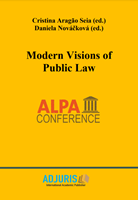
If human sciences study behaviours, administrative science mobilizes a number of disciplines, raising administration problems from a double perspective – theoretical and practical. Since the points of view of specialists in these disciplines do not overlap, one speaks of plural administrative sciences rather than of a single, unified administrative science. Administrative science is generally approached within a single discipline, even if it requires a broader approach, with no need to integrate knowledge from different disciplines that have as their object the knowledge of public administration, as it is difficult to reduce the research results from these disciplines to a common denominator. But a theory of public administration common to all administrative sciences can only be achieved through the common approach of research devoted to the current problems of public administration, research undertaken by representatives of administrative law, administrative procedure, administrative policy, sociology, history, political science, legal linguistics, etc. to focus on diverse and selective topics, to approach in a general way, but also in detail.
More...
The purpose of the publication is to clarify the legal grounds for delimiting the jurisdiction over disputes arising in connection with public service and the legal grounds for applying the institution of mediation in the field of labor relations. The article examines the legal basis for determining the jurisdiction of labor disputes in Ukraine based on their subject matter and peculiarities of the subject composition of the dispute, as well as the prospects for using mediation, especially in the context of the challenges posed by COVID-19 and martial law in Ukraine. It is stated that 1) labor disputes arising in connection with public service may be considered within the framework of administrative proceedings; 2) globalization of the economy, in particular, the integration of the Ukrainian economy, requires the introduction of new effective institutions regulating market relations, and thanks to mediation, the institution of labor disputes has been able to develop in a new vector. The author analyzes the correlation between the concepts of "civil service" and "public service" and offers recommendations for their differentiation. The author formulates the concept of "dispute in the field of labor relations and public service". The legal grounds for the use of mediation in the field of labor relations and public service are substantiated. The methodological basis of the research is such methods of scientific knowledge as: dialectical, comparative legal, dogmatic, logical methods of scientific knowledge.
More...
The trend towards the acceleration and simplification of administrative procedures is not new in the Portuguese legal system. However, the globalization of economies, which need to be reconciled with the protection of multiple public interests, has been pushing the legislator to pursue this path. This paper proposes to analyse DL no. 11/2023, of February 10th, included in the simplex programme, which has introduced several simplification and acceleration changes in many legal systems, especially in the environmental field. This is a particularly complex area, which requires great care when implementing solutions that facilitate decision-making, at the serious risk of not adequately pursuing public interests. The preamble of this law clarifies that it " aims to initiate the simplification reform of existing licencing, through the elimination of licences, authorisations, acts, and dispensable or redundant procedures linked to the protection of environmental resources, simplifying the activities of companies without compromising environmental protection (...), the Public Administration focusing, particularly, on monitoring, co-responsibility, and self-control by economic operators. Is simplification reconcilable with environmental public interests? Will it be sufficient, given the irreversibility of much ecological damage, to rely solely on monitoring and surveillance functions, leaving aside the preventive and precautionary functions?
More...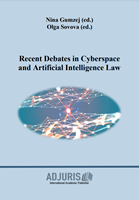
To write about a branch of law entitled "new technologies" places us in a challenging but topical realm because we can only identify in a fragmentary way the meaning of a set of legal rules that have been promulgated by the legislature, and even less the positive law that is actually applicable at national level or even in most EU countries. However, it is not only with this thought that we proceed in the conception of the present material, but also with the idea that has become dominant as a business concern, an idea that highlights the prerogative of any person to "try his luck" by concluding a coded agreement , using a laptop and at the same time at least one other subject of law willing in consensus to use blockchain technology. We can also visualize the public official automatically enrolled in the digitization process, acting as a "business partner" of the public administration and performing in the context of the current legal area mismatch service duties using blockchain technology in energy market procurement. To conclude a so-called "smart contract" by means of blockchain technology certainly implies an agreement of wills and the typed intention of the parties concerned in a legal framework not regulated by general legal rules or specific and applicable particular provisions. We thus aim to quantify and even outline a legitimate content with finality, which aims at what as early as 2018 at the level of the Committee on International Trade was highlighted and expressed in the Report4 indicating blockchain technology as a policy and business practice of the future that seems to have already caught up with us. This paper proposes a statistical study that reflects the integration of the concepts of blockchain technology and smart contracts into the knowledge of legal-administrative practice in Romania.
More...
Znaĉaj nauke za ĉovjeka i ljudsko društvo vrlo je velik. Nauka je naĉin spoznaje svijeta. A svijet u kojem mi ţivimo je veoma ovisan o nauci i tehnologiji. Da bismo bolje navigirali ovim svijetom, potrebno je da znamo ponešto o osnovnim nauĉnim fenomenima – kako stvari rade, kako se nešto dešava i kako funkcionira naš organizam. Zato ulaganje u nauku i obrazovanje, a samim tim i u ljudske resurse, donosi veliku korist za pojedince i društvo u cjelini. Pojedinci i društvene grupe zauzimaju odreĊeno mjesto u društvu na osnovu znanja kojim raspolaţu. Ono unapreĊuje sve oblasti ĉovjekovog ţivota i djelovanja. Društvo i nauka su ĉvrsto vezani i nalaze se u meĊusobnom odnosu. Društvo je stvaralo uslove i davalo društveni ambijent u kome se nauka mogla razvijati. S druge strane, nauka je omogućavala brţi razvoj pojedinih društvenih oblasti i cijelog društva. Povoljni društveni uslovi uticali su na nastanak brojnih izuma, patenata, tehniĉkih rješenja i modernizacija. Razvoj informatike dodatno je ubrzao razvoj i povezivanje preduzeća, multinacionalnih kompanija, drţava regija i svijeta. Povećana je razmjena ljudi, dobara, proizvoda i usluga. Ĉetvrta industrijska revolucija otvorila je neslućene mogućnosti razvoja i dalje promjene društva, društvenih odnosa. Sve ove promjene utiĉu pozitivno i na razvoj cjelokupnog društva, ali i demokratije i ljudskih prava. Sve ovo govori o jednoj simbiozi koja je rezultirala da nauka i društvo postanu jedna savremena forma ljudskog ţivora i razvoja civilizacije u XXI vijeku. Zbornik radova pod naslovom „SAVREMENA SIMBIOZA - NAUKA I DRUŠTVO“ je publikacija nauĉnih radova u okviru nauĉnog skupa „Nauka i društvo“. Ova publikacija predstavlja nauĉne i struĉne radove već dokazanih nauĉnih radnika i istraţivaĉa, ali i onih koji su na poĉetku svog nauĉnog rada. U Zborniku su objavljeni radovi nauĉnih radnika iz Bosne i Hercegovine i Republike Srbije, koji su u skladu sa njihovim nauĉnim iskustvom, uz dobronamjerne recenzije, usklaĊeni i adekvatno kategorisani. S obzirom na multidisciplinarnost teme zbornik obuhvata radove iz raznih nauĉnih disciplina kao što su: ekonomija, pravo, bezbjednost, defektologija, politiĉke nauke, sociologija i pedagogija. Radovi su aktuelni i obraĊuju savremena društvena pitanja i probleme, ali i teorijska i praktiĉna dostignuća pojedinih nauĉnih disciplina. Na takav naĉin dajemo podsticaja svim mladim ljudima da kroz svoj nauĉni rad daju doprinos u rješavanju brojnih društvenih problema. Upravo i prilikom izbora tekstova ureĊivaĉki odbor je ţelio da takvi radovi budu prioritetni u ovom zborniku, te je i sam naziv istog proistekao iz te ideje i potrebe. Nauĉni radnici, posebno oni koji su na poĉetku svoje akademske karijere, trebaju podršku kako bi istrajali u svom usavršavanju i nauĉnom dokazivanju. Ovaj Zbornik, kao i sam nauĉni skup, nastao je iz entuzijazma nekolicine profesora okupljenih oko Centra modernih znanja, da kroz ovakav vid nauĉnog rada otvore vrata nauke svim mladim nauĉnim radnicima i istraţivaĉima kako bi i njihova empirijska istraţivanja i dobijeni rezultati bili prezentovani široj javnosti. TakoĊe, dosadašnja saradnja sa kolegama iz Beograda i Nikšića rezultirala je da izdavaĉi ovog zbornika budu tri udruţenja iz regiona koja već duţi vremenski period saraĊuju organizujući razne edukacije. Brojni radovi otvaraju razne dileme i ostavljaju mjesta diskusiji kako i na koji naĉin nastaviti i razvijati razne nauĉne discipline. S tim u vezi ostavljamo vam prostora, da i vi svojim sugestijama i razmišljanjima, zajedno sa autorima traţite efikasnija rješenja i mogućnosti. Ovaj Zbornik nije konaĉan, jer nauka svaki dan traga za neĉim novim pa tako i autori i ureĊivaĉki tim ove publikacije.
More...
The book is published as a result of a national scientific conference “The law and the business in the contemporary society”, which took place at 19 October 2023 in the University of Economics – Varna. The scientific forum was organized by the Legal sciences Department – project SPF – KC 24 - LBCS, pursuant to contract for partial financing of scientific forum according to Regulation for the conditions and order of evaluation, planning, distribution and spending of funds from the state budget for financing of the inherent for the state higher schools scientific or artistic activity, promulgated State Gazette 73/16.09.2016, effective of 01.01.2017, adopted by decree of the Council of ministers № 233 /10.09.2016 г.
More...